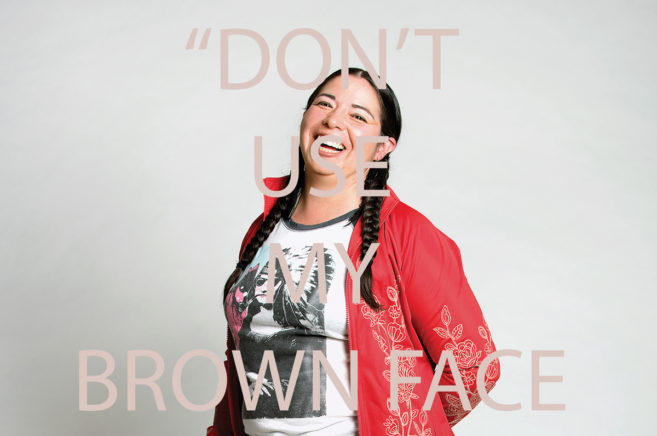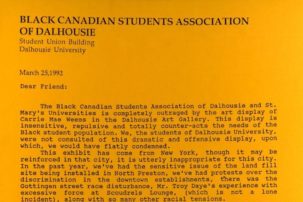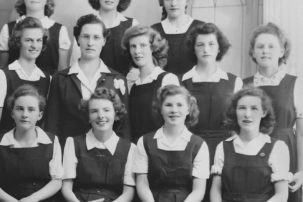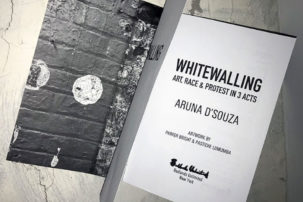This conversation, Deviation: Alternative Economies, was part of The Ecology of an Art Scene, a Toronto symposium that brought together experts from Paris and Toronto to discuss what makes art communities tick on November 8 and 9, 2013.
On November 8, Part I of the symposium took place at Harbourfront Centre, and on November 9, Part II took place in Toronto City Hall Council Chambers.
Deviation: Alternative Economies was moderated by Adrian Blackwell, artist and architectural designer. It addressed the different conditions and audiences of white-cube and stealth art spaces; the drive to create art spaces that provide different offerings than the mainstream; the possibilities of working in civic spaces in fresh ways; and more.
The conversation participants included Suzanne Carte and Su-Ying Lee, co-curators, Under New Management, Toronto; Deirdre Logue and Allyson Mitchell, co-directors, Feminist Art Gallery, Toronto; and Mathilde Villeneuve, co-director, Les Laboratories d’ Aubervilliers, in France.
The Ecology of an Art Scene | Conversation Four | Deviation: Alternative Economies from Canadian Art on Vimeo.
The Ecology of an Art Scene was part of the Canadian Art Foundation International Speaker Series and was presented in partnership with the Consulate General of France in Toronto as part of Paris-Toronto, a 10-month series highlighting contemporary art from France in the Greater Toronto Area. The symposium was sponsored by BMO Financial Group, with support from the Institut français.
The introductory text for this particular conversation was as follows: A number of alternate and informal approaches to art have arisen that skirt the commercial activity of the art market and the programmatic structure of mainstream artistic and academic institutions. The economic and social realities of the art world have prompted some artists, curators and educators to invent creative means for presenting and circulating contemporary art and discourse. Artist-run initiatives and autonomous collectives have generated informal infrastructures and alternative economies built around values of cooperation, exchange, democracy and diversity, offering rare opportunities for exercising artistic, social and political potential. Often developed in intimate cooperation with their setting, yet always aware of the outside, these initiatives play a key role in the art scenes of Paris and Toronto. This session will explore the organizing strategies and creative methodologies used to experiment with new social forms of research, practice, pedagogy and institution-building.
For more information, please visit canadianart.ca/paristoronto.

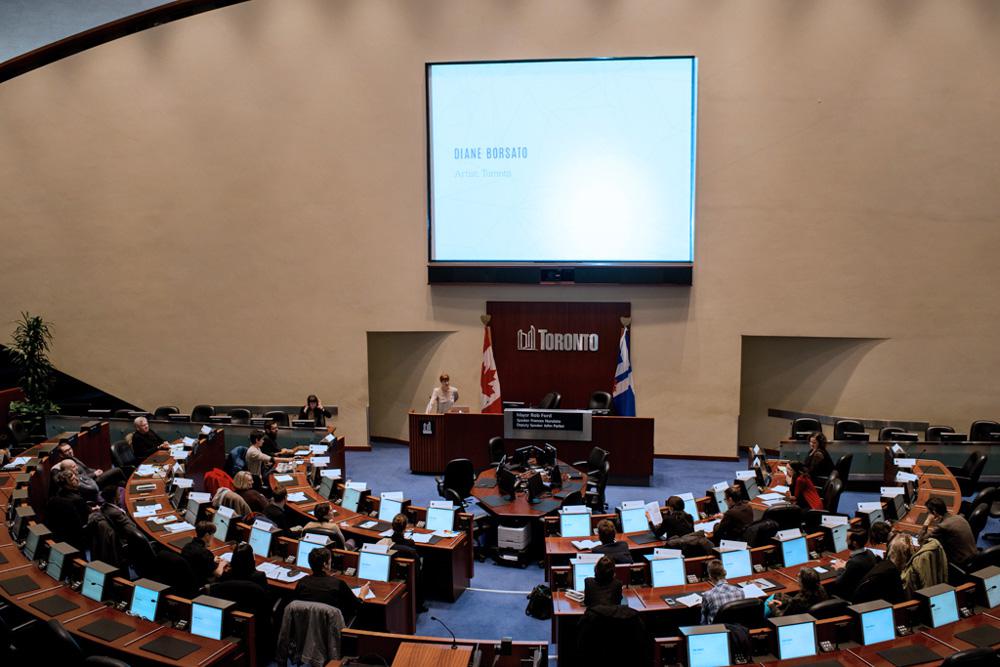 One of the Ecology of an Art Scene conversations at Toronto City Hall Council Chambers on November 9 / photo Emma McIntyre
One of the Ecology of an Art Scene conversations at Toronto City Hall Council Chambers on November 9 / photo Emma McIntyre
